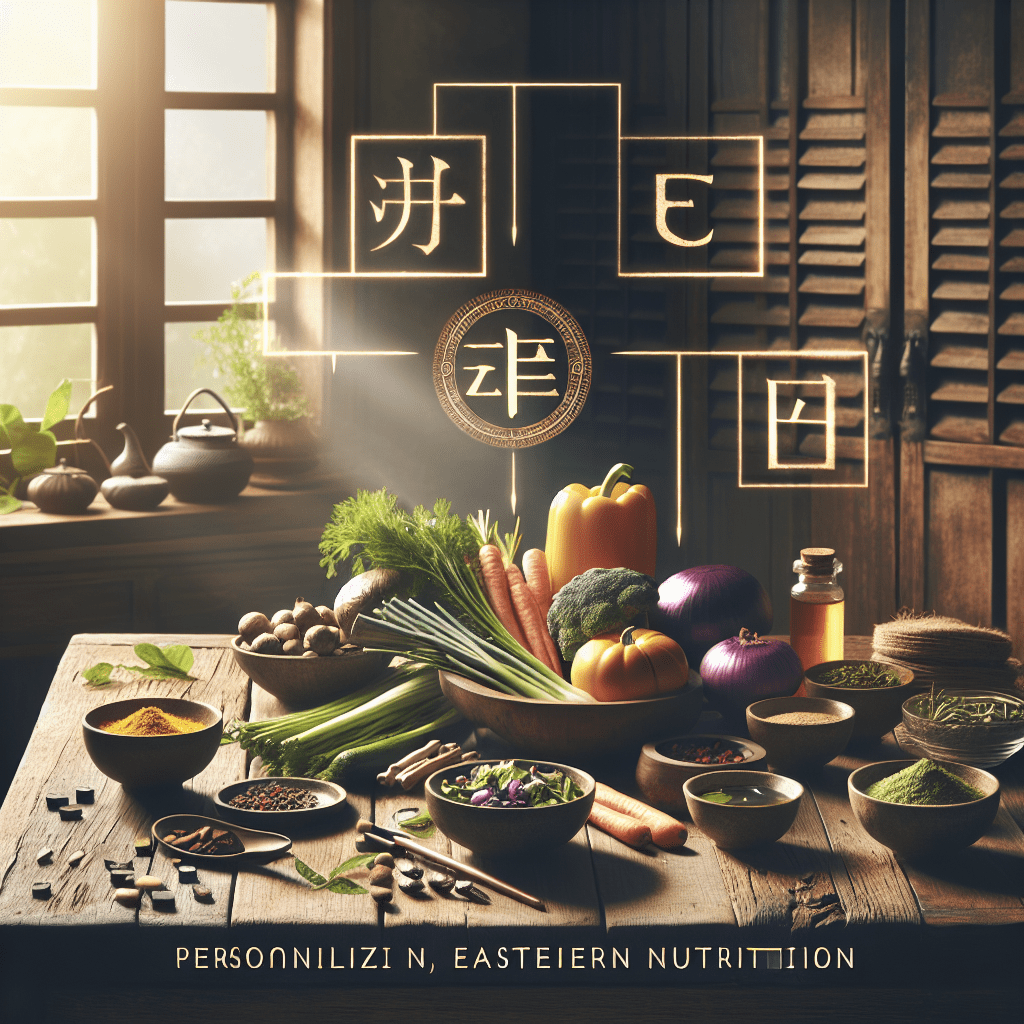Have you ever received nutritional advice that left you wondering how to actually turn it into delicious meals? You’re not alone. While expert guidance is invaluable, the real magic happens when we transform those recommendations into nourishing, appetizing dishes that support our unique health journeys.
Tailored nutritional guidance isn’t just a fancy term—it’s a personalized approach to eating that considers your individual needs, preferences, and health goals. Unlike one-size-fits-all diet plans, personalized nutrition acknowledges that your body is unique, with specific requirements based on your age, health conditions, activity level, and even constitutional type.
The beauty of tailored nutrition lies in its precision. Instead of following generic recommendations, you receive advice specifically crafted for your body. This personalized approach can help you manage chronic conditions, optimize energy levels, support immune function, and achieve your wellness goals more effectively. As Eastern healing traditions have recognized for thousands of years, true health comes from understanding your unique constitution and nourishing it accordingly.
The Foundation: Strategic Meal Planning
Meal planning offers numerous benefits that support your health journey:
- Reduces decision fatigue: When meals are planned, you eliminate the stress of last-minute food decisions, which often lead to less healthy choices.
- Saves time and money: Planning reduces food waste and unnecessary purchases while streamlining your grocery shopping.
- Ensures balanced nutrition: A well-designed meal plan helps you incorporate all the nutrients your body needs throughout the week.
- Creates consistency: Regular, planned meals help stabilize blood sugar and energy levels.
“Meal planning is the secret weapon that turns nutritional knowledge into living practice,” explains a nutritional counselor at HerbalsZen. “It’s where Eastern wisdom meets modern life—bringing intention and mindfulness to our eating habits.”
According to research, individuals who follow personalized meal plans are significantly more likely to maintain healthy eating habits long-term compared to those who receive only general dietary guidelines. This personalized approach aligns perfectly with Eastern medical philosophies that emphasize unique constitutional types and individual balance.
Crafting Your Personal Meal Plan
1. Assess your personal dietary requirements
Begin by understanding your unique nutritional needs. Consider:
- Your constitutional type according to Eastern medicine principles
- Any health conditions that require dietary management
- Food sensitivities or allergies
- Current health goals (energy, weight management, immune support, etc.)
- Seasonal influences on your body’s needs
2. Select nutrient-dense foods that align with your profile
Once you understand your needs, choose foods that provide optimal nourishment:
- Focus on whole, unprocessed foods as your foundation
- Incorporate a variety of colors and textures
- Select seasonal foods that support your body’s natural rhythms
- Include healing herbs and spices that enhance both flavor and therapeutic benefits
3. Create balanced meals with complementary ingredients
Each meal should include:
- A quality protein source
- Healthy fats
- Complex carbohydrates
- Abundant vegetables and/or fruits
- Herbs or spices with healing properties
“Eastern healing traditions teach us that balance on our plate creates balance in our body,” shares a health advisor from HerbalsZen. “The right combinations of foods don’t just satisfy hunger—they harmonize our internal systems.”
When designing your meal plan, think of your plate as a canvas for creating balance. The ancient wisdom of Five Element Theory suggests incorporating foods of different colors, flavors, and energetic properties to support overall harmony in the body. This might mean including warming foods during cold seasons or cooling foods during hot periods—a concept that aligns perfectly with tailored nutritional guidance.
Meal Prepping: The Bridge to Consistency
Effective meal prepping strategies include:
Batch cooking core ingredients
Prepare larger quantities of versatile staples like brown rice, quinoa, roasted vegetables, or protein sources that can be mixed and matched throughout the week.
Pre-portion balanced meals
Package complete meals in containers for grab-and-go convenience, ensuring you maintain balanced nutrition even on busy days.
Prepare ingredient components
Wash and chop vegetables, marinate proteins, or blend sauces in advance to streamline daily cooking.
Create a rotating schedule
Plan a 2-3 week rotation of meals to maintain variety while simplifying the planning process.
A recent survey found that people who spend just 2-3 hours meal prepping on weekends report eating healthier meals consistently throughout the week and experiencing less stress around mealtimes. This preparation creates a rhythm and routine that supports adherence to your personalized nutritional plan.
“Meal prepping is mindfulness in action,” notes a nutritional expert from HerbalsZen. “By preparing food with intention, we’re not just saving time—we’re infusing our meals with care and purpose, which is central to Eastern approaches to healing.”
Making Healthy Food Delicious: The Art of Flavorful Healing
Try these approaches to create meals that are both nutritious and delicious:
Explore the healing power of herbs and spices
Beyond flavor, many herbs and spices offer therapeutic benefits. Turmeric reduces inflammation, ginger aids digestion, and cinnamon helps balance blood sugar. Experiment with spice blends inspired by different culinary traditions to keep meals exciting.
Master nutrient-preserving cooking methods
Techniques like steaming, quick-sautéing, and low-temperature roasting preserve nutrients while developing flavor. The gentle cooking methods favored in many Eastern traditions often retain more nutritional value than high-heat Western techniques.
Play with texture and color
Create meals with varied textures—crunchy, creamy, chewy—to make eating more satisfying. Similarly, aim for a rainbow of colors on your plate, which naturally ensures a wide range of phytonutrients.
Learn the art of flavor balancing
Understanding how to balance the five fundamental tastes—sweet, sour, salty, bitter, and umami—can transform simple ingredients into complex, satisfying dishes. This concept of balance mirrors Eastern philosophies about harmonizing opposing energies within the body.
“Food is our most fundamental medicine,” explains a HerbalsZen nutrition counselor. “In Eastern medicine, we’ve always known that healing foods should delight the senses. When we create dishes that nourish both body and spirit, true healing can begin.”
Staying Organized: Systems for Success
Consider these organizational strategies:
Maintain a well-stocked pantry
Keep a core selection of shelf-stable items that align with your nutritional needs. This might include whole grains, legumes, nuts, seeds, healthy oils, and healing herbs and spices. A well-organized pantry makes it easier to prepare healthy meals even when fresh shopping hasn’t happened.
Create weekly routines
Establish regular times for meal planning, shopping, and prepping. Consistency in these activities builds habits that support your nutritional goals.
Use digital tools wisely
Apps for meal planning, grocery lists, and recipe organization can streamline the process. Some even allow you to save notes about how certain foods affect you, supporting your journey toward personalized nutrition.
Practice mindful food storage
Store prepared ingredients and meals in clear containers, labeled with dates. This simple practice reduces waste and makes healthy eating the easiest choice.
“Organization creates freedom,” notes a wellness coach at HerbalsZen. “When our food systems are orderly, we free up mental energy to focus on truly enjoying our meals and noticing how they support our wellbeing.”
The Holistic Benefits of Personalized Nutritional Implementation
The holistic benefits include:
- Greater body awareness: You’ll become more attuned to how different foods affect your energy, mood, and overall wellbeing.
- Deeper connection to natural cycles: Eating seasonally and in alignment with your body’s needs fosters a connection to natural rhythms.
- Reduced stress around food choices: Clear guidance and planning eliminate the anxiety of food decisions.
- Sustainable healthy eating: When nutritious food is also delicious and satisfying, healthy eating becomes a lifestyle rather than a temporary fix.
- Empowered self-care: Taking charge of your nutrition is a powerful form of self-care that ripples into other areas of your life.
At HerbalsZen, we believe that food is a powerful tool for transformation when it’s aligned with your unique constitution and needs. Our approach, like traditional Eastern medicine, sees each person as an individual with specific requirements for balance and harmony. Through EASTCHI AI, we help identify your constitutional type and provide tailored nutritional guidance that respects ancient wisdom while embracing modern understanding.
Transforming expert nutritional advice into delicious, healing meals isn’t just about following rules—it’s about creating a deeply personal relationship with food that supports your unique wellness journey. When we eat in alignment with our individual needs, every meal becomes an opportunity for healing, nourishment, and joy.
Remember, the most effective nutritional plan is one that you can maintain with pleasure. By making your personalized guidance practical, delicious, and organized, you create not just meals, but a sustainable path to vibrant health that honors the wisdom of Eastern healing traditions and your body’s unique needs.




